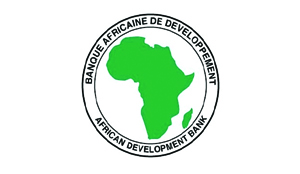 By JUDITH NAMUTOWE –
By JUDITH NAMUTOWE –
THE African Development Bank (AfDB) has adopted an action plan and wide-ranging partnerships to transform African agriculture into viable agri-business.
The adoption of an action plan and wide-ranging partnerships to transform African agriculture into viable agri-business were the main outcomes of the three-day conference on Africa’s agricultural transformation, which ended in Dakar, Senegal at the weekend.
In a statement issued by AfDB, decisions taken by the finance and agriculture ministers and central bank governors who attended the conference, was to scale up nutrition programmes across Africa to end malnutrition and hunger.
AfDB president, Akinwumi Adesina said the conference had created the synergy needed for effective partnerships to enable the bank attain the objectives of feeding Africa.
“This programme will involve establishing a strategic partnership with American President Barack Obama’s Feed the Future Initiative, Grow Africa of the World Economic Forum, the Big Win Philanthropy, the Food and Agricultural Organisation.
“ Scaling up Nutrition, the World Food Programme, the Bill and Melinda Gates Foundation, the Global Panel on Agriculture and Food Systems for Nutrition and the private sector at large, to deploy innovative approaches to addressing malnutrition,” he said.
The conference also approved a list of organisations to lead initiatives aimed at raising agricultural productivity across the continent, in close partnership with AfDB, the World Bank and development partners.
AfDB, the African Union Commission, New Partnership for Africa’s Development (NEPAD), the United Nations Economic Commission for Africa, the World Bank, the International Fund for Agricultural Development, and the United Nations Industrial Development Organisation, would work closely with other development partners in the development of agro-allied industrial zones and agricultural corridors.
The goal is to accelerate investments in integrated infrastructure to improve competitiveness of Africa in processing and value addition to agricultural products.
Other action plans aim to significantly increase commercial financing to the agriculture sector by establishing an African Agricultural Risk Sharing Facility.
“The Bank will work with partners to leverage US$3 billion in financing for women farmers, agri-businesses and other women-owned enterprises.
This will be achieved through the establishment of a $300-million facility to de-risk financing to women owned-businesses by commercial banks and microfinance institutions,” he said.
Dr Adeseni said the Bank would also triple its climate financing to $5 billion annually by 2020 by working closely with the African Union, the African Ministerial conference on the environment, the United Nations Environmental Programme and the G7 for the establishment of the Africa Renewable Energy Initiative.
He said the Bank would support African countries to have access to the Africa Risk Capacity to manage climate-related catastrophic challenges.
Under the plan, Central Banks in Africa will set aside special funds to allow farmers access credit at reduced interest rates for long-term agricultural loans with longer-term maturity.
He said the Bank will develop Agribusiness Diaspora Bonds to securitise remittance flows for investments in African agriculture and agri-business.
Dr Adeseni said the Bank would scale up skills enhancement for youths in agriculture and establish an African Youth in Agriculture Financing Facility to support young commercial farmers and youths in agriculture.






